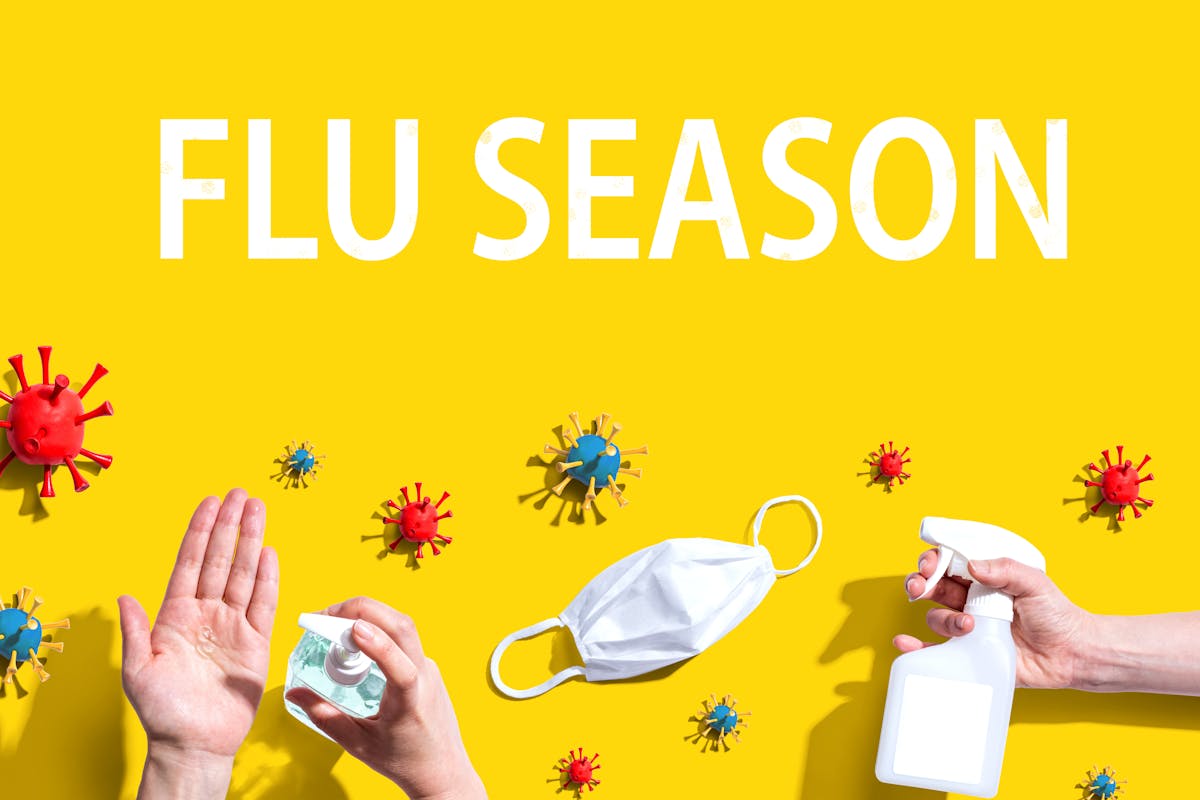How to Shoo the Flu During Influenza Season

With so much attention focused on COVID-19 over the past few years, it’s been easy to overlook another unwelcome visitor that makes its return every fall: the influenza virus. Many people think the flu is nothing more than a few days of not feeling well. In reality, it can be much more serious for seniors.
The flu and its related complications, such as pneumonia or myocarditis, put seniors at risk. Older adults account for as much as 85% of flu-related deaths and up to 70% of hospitalizations.
One method of prevention many of us are familiar with is the annual influenza vaccine. Considered the gold standard for avoiding the flu bug, it’s usually available at your primary care doctor’s office or a local pharmacy. Medicare and most types of health insurance cover the cost.
But the flu shot isn’t the only step you can take to minimize the risk of catching the virus during flu season. There are lifestyle choices that also play a role in avoiding influenza.
Steps Seniors Can Take to Avoid the Flu
- Avoid crowds and close contact: One way the flu virus is passed is through personal contact (e.g., a hug or handshake) or by being in close proximity to someone who is sick, even if they don’t yet have symptoms. As we learned from the COVID-19 pandemic, social distancing helps lower person-to-person transmission of viruses. While it isn’t always possible, social distancing during the height of flu season is an effective prevention measure.
- Wear a face mask: Masks are another effective way to limit your exposure. When the flu is spreading in your area, consider wearing a mask when you go grocery shopping or to an appointment.
- Take care of yourself: Keeping your immune system strong also helps to lower the risk you’ll catch the flu. A well-balanced diet combined with exercise, good hydration, and quality sleep are key.
- Wash your hands often: Good hand-washing hygiene is essential any time of year, but especially during flu season. Research shows the flu virus can live on hard surfaces for 24 to 48 hours. That means touching door handles, shopping carts, counters, and more may bring you in contact with the virus. For those times you can’t wash your hands, keep a bottle of alcohol-based hand sanitizer in your purse or pocket.
- Avoid touching your face: Have you ever noticed how many times a day you touch your face? It might be to rub tired eyes, scratch an itchy nose, or push the hair back off your face. Researchers say you probably touch your face as often as 16 times an hour! If you have the influenza virus on your hands, that increases the likelihood you will get sick.
Despite your best efforts at prevention, you may develop signs of the flu when the virus is making its rounds. Though no medications can cure it, some prescription antiviral drugs can lessen the severity of symptoms and shorten the length of time you are sick. But to be effective, they need to be taken in the earliest stages of the disease. So don’t delay in calling your primary care physician if you feel yourself coming down with the flu.
Mobile Monitoring Units Offer Peace of Mind
If you or a senior loved one lives or travels alone, investing in a mobile monitoring unit might offer you peace of mind. In the event of an emergency, the simple press of a button on this discreet device can connect the user with someone who can help. Call 1-844-203-5617 today to learn more!